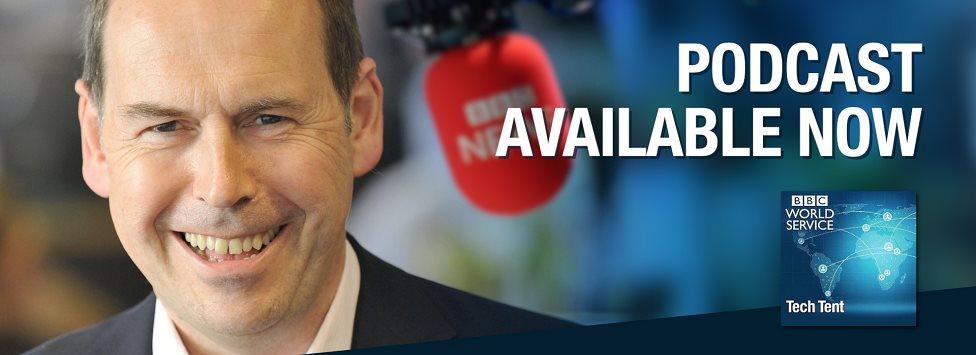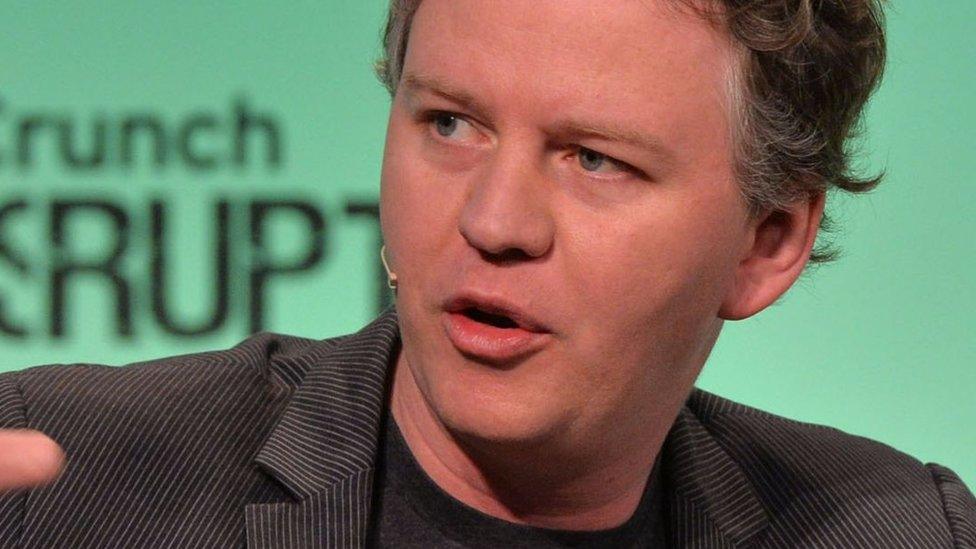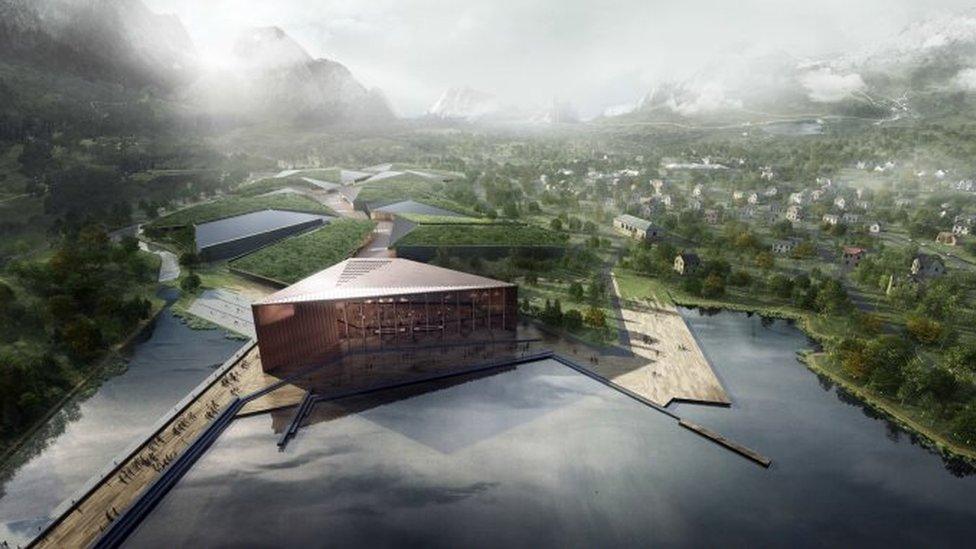Tech Tent: Web firms drop neo-Nazi site
- Published

Stream or download, external the latest Tech Tent podcast
Listen to previous episodes on the BBC website
Follow Tech Tent, external on Twitter

On Tech Tent this week, Silicon Valley agonises over whether service providers should have the power to kick an organisation off the internet - even if it is a vehicle for white supremacists.
We hear about plans to build the world's biggest data centre inside the Arctic Circle and we work out how data science can improve a city's transport.
Free speech and open access - two fundamental principles underlying the internet that have almost universal support among Silicon Valley tech firms.
Apart from those who break the law, such as terrorists or people sharing child abuse images, many believe everyone should be able to use web firms' services.
But this week, following events in Charlottesville, that changed. Fascist website the Daily Stormer was kicked off the internet by its domain registrar GoDaddy, with Google doing the same hours later.
Then Cloudflare, which protects sites from distributed denial of service (DDoS) attacks, also decided it didn't want the Nazi site as a customer.
In a painfully honest memo to staff, chief executive Matthew Prince made it clear how agonising it is for tech firms to make this kind of decision. He said it had been an arbitrary move driven by his disgust at the site's behaviour:
"I woke up this morning in a bad mood and decided to kick them off the internet," he said, but acknowledged he was worried about the wider consequences. "No-one should have that power."

Matthew Prince said he should not have the power to force sites off the internet
Mr Prince tells Tech Tent he is nervous about the implications of making an exception to what he believes is a principled position of doing business with anyone: "While that's really popular - people on Twitter are saying nice things about me - I worry about the long term."
Others share that concern and believe there should be no exceptions to the principle of universal access to the internet.
The Electronic Frontier Foundation, one of the principle champions of net neutrality, is concerned that a precedent has been set, external which could encourage more online censorship.
And the Tor Project, whose technology has enabled the Daily Stormer to stay online, says that while it is disgusted by the site, it can't offer tools that allow free expression and then decide who can use them, external.
Many more tech bosses will surely grapple with this moral dilemma as America's culture wars rage on.
Cool data in the Arctic
If the textile mill was the visible face of the industrial revolution during the 19th Century, it is data centres that are the factories of the future.
These giant buildings, packed with servers but run by just a handful of workers, are going to be ever more important in the era of cloud computing and the internet of things.
This week Kolos, an American-Norwegian company, unveiled plans for the "largest" data centre yet.
It will be a four-storey building using a gigawatt of power and will be built within the Arctic Circle in the town of Ballangen in Norway - though the project still has to raise the investment needed to make it happen.
Mark Robinson, joint chief executive of Kolos, says one factor that helped him choose the location is the weather: "It's naturally cool - there are about two weeks a year where it's hot enough to need alternative cooling sources, the rest of the year it can be done with nice cool fresh air."

The new data centre will be easier to cool thanks to low temperatures outside
We might think of the data centre industry as being dominated by Amazon and Google, with their fast-growing cloud computing operations.
But Mr Robinson says they actually have a relatively small stake and as more organisations move their computing operations to the cloud, the industry is set for rapid expansion.
That means there will be ever more focus on the environmental impact of these power-hungry data factories, so expect others to follow Kolos to northern Norway and other cool regions.
Manchester's data experiment
One reason why we are going to need more data centres is the explosion in data generated by smart city projects.
In Manchester, an experiment is under way to see if data science can make the city's transport system serve passengers better.
American tech giant Cisco is working with Transport for Greater Manchester on a project that will collect data from public wi-fi and Bluetooth connections to better understand how people move around the city
Nick Chrissos, from Cisco, says one issue is that the way the buses and trams are scheduled does not help sudden crowding, for instance when thousands emerge from a football match: "We believe we can use data to modify the schedule and where the buses go to alleviate the problem."

Could big data help prevent traffic jams?
That is all very well - but knowing that the buses are full does not necessarily give you the resources to lay on extra services.
The kind of "on-demand" transport system which Cisco envisages may not be practical but Simon Warburton from Transport for Greater Manchester still sees great value in having more information: "We want to use that richer data to better design our future plan."
He stresses that passengers will also have access to the live data in order to find out whether the next tram is full so that they can change their route home.
"The data can be massive, but the human brain is limited," warns Prof Cecilia Wong from the University of Manchester. "You also need really good people who understand what the issues are."
She thinks Manchester needs to be wary of giant tech firms with expensive ideas: "Each city needs to tailor things for their own needs - it's quite dangerous to buy an off-the-shelf product from some giant company."
The data revolution promises to transform the way our cities work. But so far there are lots of ambitious projects but rather fewer examples of improvements that the average city dweller would notice.